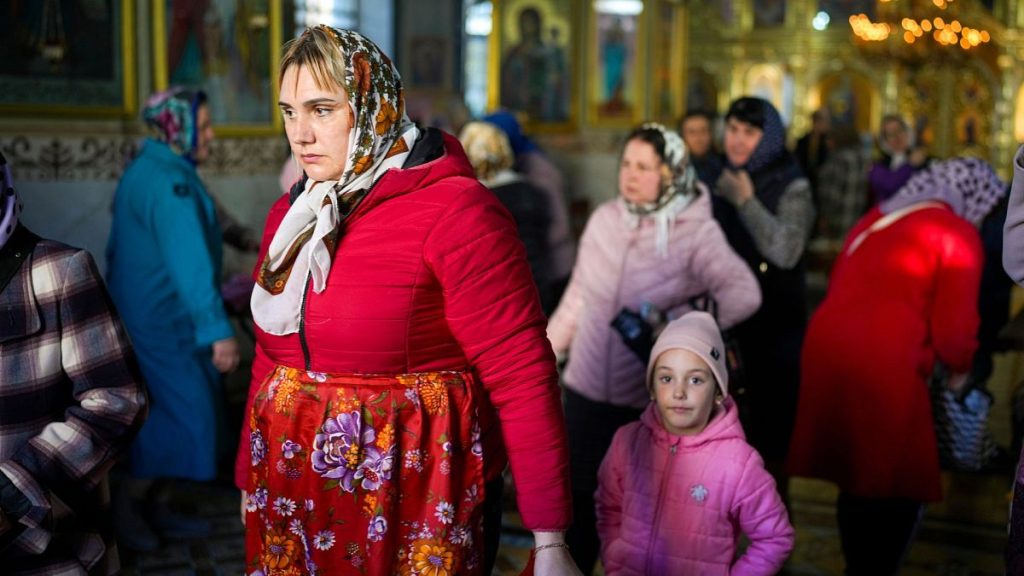Moldova finds itself on the precipice of a severe energy crisis as the looming winter threatens to plunge the nation into darkness and cold. The crisis stems from a dispute with Russia’s state-owned energy giant, Gazprom, which plans to halt gas supplies to Moldova on January 1st, citing an unpaid debt of $709 million. The Moldovan government, however, vehemently rejects this claim, labeling it a politically motivated fabrication designed to destabilize the country and undermine its aspirations for closer ties with the European Union. This impending gas cutoff casts a long shadow over Moldova’s energy security, particularly given the vulnerability of its largest power plant, Kuciurgan, located in the breakaway region of Transnistria. This plant supplies a significant portion of Moldova’s electricity, and its potential shutdown raises the specter of widespread power outages and a humanitarian crisis, especially in Transnistria.
The Moldovan government, led by President Maia Sandu and Prime Minister Dorin Recean, has responded to the crisis with a mix of reassurance and proactive measures. While acknowledging the gravity of the situation, they have emphasized the existence of temporary gas reserves sufficient for the heating season and implemented energy-saving measures across the country. These measures include reducing public lighting, encouraging energy conservation in commercial buildings, and shifting energy-intensive operations to off-peak hours. While these steps aim to mitigate the impact of the potential gas cutoff, concerns remain about the long-term consequences and the potential for social and political instability. The government’s efforts to reassure the public are tempered by the harsh realities of the situation and a growing sense of unease among ordinary citizens who fear a winter without heat or electricity.
The looming crisis has exposed the complex geopolitical dynamics at play in Moldova, a small nation caught between Russia and the European Union. The gas dispute is viewed not merely as an economic issue but as a manifestation of Russia’s broader strategy to exert pressure on Moldova and thwart its westward trajectory. Moldova’s pro-Western government has accused Russia of using energy as a political weapon, a tactic seen as part of a broader “hybrid war” that includes funding protests, spreading disinformation, and exploiting existing tensions within Moldovan society. The situation in Transnistria, a breakaway region with close ties to Russia, further complicates the crisis. The region’s dependence on the Kuciurgan power plant makes it particularly vulnerable to the gas cutoff, raising concerns about a humanitarian crisis and potentially exacerbating existing tensions between Chisinau, the Moldovan capital, and Tiraspol, the de facto capital of Transnistria.
The potential humanitarian fallout in Transnistria is a significant concern. With the prospect of severe shortages of essential utilities, there are fears that residents will be forced to seek refuge and assistance in Moldova proper, straining resources and potentially exacerbating social tensions. This scenario highlights the precariousness of the situation and the potential for the energy crisis to spill over into a broader humanitarian crisis. The Moldovan government, while facing its own challenges, is cognizant of the potential consequences in Transnistria and is preparing for the possibility of a significant influx of people seeking refuge from the cold and darkness. This adds another layer of complexity to an already challenging situation, requiring careful planning and resource allocation to address the potential humanitarian needs.
The energy crisis also underscores Moldova’s ongoing struggle to diversify its energy sources and reduce its dependence on Russian gas. While steps have been taken to explore alternative suppliers and develop renewable energy sources, the country remains vulnerable to Russian pressure. The current situation highlights the urgency of accelerating these efforts and securing reliable energy sources that are not susceptible to political manipulation. This challenge is not unique to Moldova; many countries in the region are grappling with similar issues as they seek to navigate the complex geopolitical landscape and reduce their reliance on Russian energy. The Moldovan crisis serves as a stark reminder of the vulnerabilities associated with energy dependence and the importance of energy security in maintaining national stability.
Looking ahead, the Moldovan energy crisis promises a difficult winter for its citizens. Beyond the immediate challenges of securing sufficient energy supplies and mitigating the potential humanitarian fallout, the crisis carries broader implications for Moldova’s political and economic future. The government’s ability to manage the crisis effectively will be a crucial test of its leadership and its capacity to navigate the complex geopolitical landscape. The crisis also underscores the importance of international support for Moldova as it seeks to strengthen its resilience and pursue its European aspirations. The coming months will be critical in determining the long-term consequences of this energy crisis and its impact on Moldova’s future.














